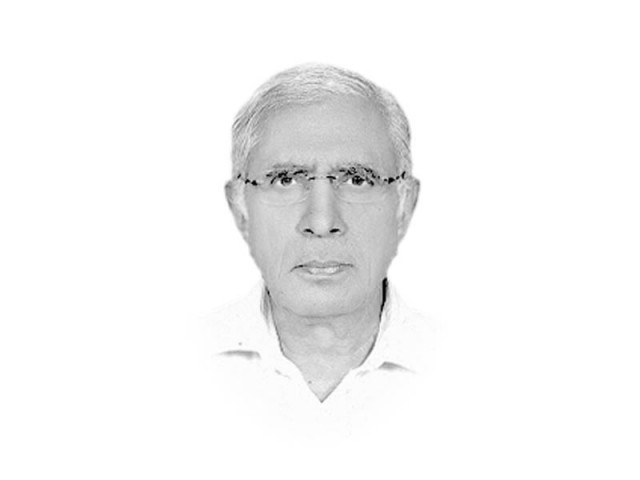The UAE syndrome
Some of our politicians prefer to do their politics in safe environs of UAE, where politics is virtually banned

The writer served as Executive Editor of The Express Tribune from 2009 to 2014
Instead, a high-powered economic team led by the finance minister visits the UAE whenever the Fund wants to discuss in detail the progress of the three-year Extended Fund Facility programme, signed in 2013, amounting to $6.6 billion. According to anecdotal reports, the Fund is only following a UN advisory to all its agencies banning travel to Pakistan. This leads one to wonder to why any investor, foreign or local, would be willing to invest in Pakistan if the UN and the country’s main lender, the IMF, have classified Pakistan as a ‘no-go’ area.
Let us keep China’s proposed $46 billion out of this discussion because even before a single dollar has come our way, a discussion has ensued in the bilateral official circles about raising dedicated forces by both China and Pakistan separately, specifically to safeguard the Chinese investment. Even the successes of the almost 16-month long Operation Zarb-e-Azb and the two-year long Karachi operation in curbing terrorist activities in the country do not seem to have convinced either the UN or the IMF to lift their self-imposed barriers on travel to Pakistan.
While we await the Fund’s ‘all clear’ certificate for the resumption, hopefully, of foreign investment activity in the country, another such ‘all clear’ certificate from seemingly an unrelated avenue, but decisively crucial for Pakistan’s economy, looks even more distant at this point in time.
And this brings us to the second Pakistan-exclusive factor that has continued to undermine our economic health since 2009, when terrorists attacked the visiting Sri Lankan cricket team in Lahore. It is now six years since we hosted any international cricket meet at home except the recent visit of the Zimbabwean team, which had remained wrapped in a very tight security envelope during its short stay in Pakistan. Since that fateful year, we have been hosting all our home international cricket meets in the UAE, where we also meet our lender of the last resort. And now we have completed the paperwork to hold our own million-dollar Pakistan Super League in Qatar.
International cricket is today an enterprise of billions of dollars. And every time we host our home tournaments in a foreign land, we lose millions because we have to share our ‘gate-money’ and income from advertising and sponsorships with the country which hosts our home matches. There is also a lot of associated business that goes with international cricket, which is denied to Pakistan that also adds to the negative sentiments about the country politically, socially and economically, causing further damage to our economic health.
And this negative sentiment has given rise to another Pakistan-exclusive factor, the third one, undermining our economy. This concerns our craving for real estate. Indeed, most savers in this country invest their savings as well as their ‘unearned’ incomes in real estate because that is considered to be not only the safest investment avenue, but also a profitable one. Those of us with ‘surplus’ savings, wanting to keep them out of the reach of the Federal Board of Revenue, invest these resources in real estate in, again, the UAE. This way billions are said to be siphoned off from the white economy, every year, and invested in the UAE real estate.
And since most of our moneyed classes have their luxury flats, villas and spacious houses in the UAE, they now prefer to do their politics in the safe environs of that country, where politics is virtually banned. In the last couple of months, especially since the Rangers turned their attention from militancy to corruption, the provincial government of the PPP has been holding most of its important meetings, even perhaps cabinet meetings, in the UAE.
Published in The Express Tribune, September 16th, 2015.
Like Opinion & Editorial on Facebook, follow @ETOpEd on Twitter to receive all updates on all our daily pieces.















COMMENTS
Comments are moderated and generally will be posted if they are on-topic and not abusive.
For more information, please see our Comments FAQ